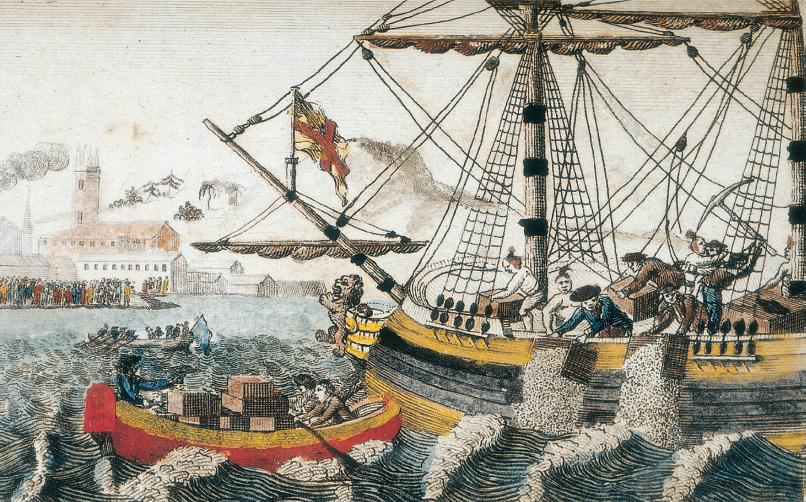Why did Parliament pass the Coercive Acts in 1774?
Printed Page 161

CHRONOLOGY
1770
- – Parliament repeals Townshend duties.
1772
- – British navy ship Gaspée is burned.
- – Committees of correspondence begin forming.
1773
- – Parliament passes Tea Act.
- – Tea is dumped in Boston harbor.
1774
- – Parliament passes Coercive Acts.
- – Powder Alarm shows colonists' readiness.
- – First Continental Congress meets.
IN THE SAME WEEK as the Boston Massacre, yet another new British prime minister, Frederick North, acknowledged the harmful impact of the boycott on trade and recommended repeal of the Townshend duties. Seeking peace with the colonies and prosperity for British merchants, Lord North persuaded Parliament to remove all the duties except the tax on tea, kept as a symbol of Parliament's power. For nearly two years following repeal of the Townshend duties, peace seemed possible, but tense incidents in 1772, followed by a renewed struggle over the tea tax in 1773, precipitated a full-scale crisis in the summer and fall of 1774. In response, men from nearly all the colonies came together in a special “Continental Congress” to debate the crisis.